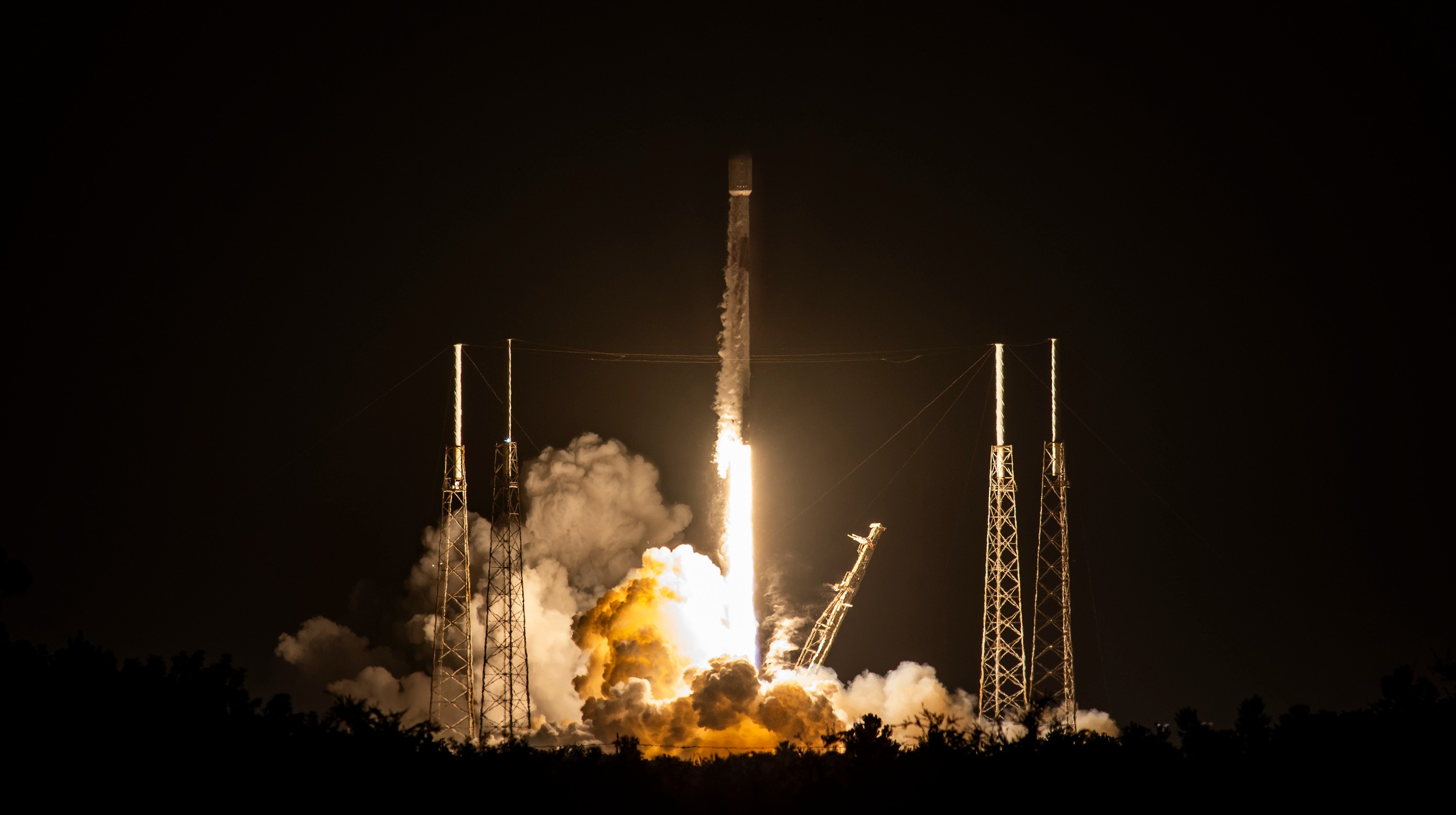SpaceX launched 22 Starlink satellites to orbit Sunday night (July 23) and landed the returning rocket on a ship at sea.
A Falcon 9 rocket carrying the Starlink spacecraft lifted off from Cape Canaveral Space Force Station in Florida Sunday at 8:50 p.m. EDT (0050 GMT on July 24) after a one-day weather delay.
The Falcon 9's first stage came back down to Earth for a landing about 8.5 minutes after liftoff as planned. It touched down on the SpaceX droneship Just Read the Instructions, which was stationed in the Atlantic Ocean.
Related: 8 ways SpaceX has transformed space travel

It was the sixth launch and landing for this particular booster, according to a SpaceX mission description.
The Falcon 9's upper stage, meanwhile, kept hauling the 22 Starlink satellites to low Earth orbit (LEO). The spacecraft were deployed there on schedule, about 65 minutes after launch.
Starlink launches are hardly a novelty these days; SpaceX has now sent five batches of the internet satellites to orbit this month already.
Get the Space.com Newsletter
Breaking space news, the latest updates on rocket launches, skywatching events and more!
The company has launched more than 4,850 Starlink craft to LEO in total, according to astrophysicist and satellite tracker Jonathan McDowell. And the number will grow far into the future; SpaceX has approval to deploy 12,000 Starlink satellites and has applied for permission to loft another 30,000.
Join our Space Forums to keep talking space on the latest missions, night sky and more! And if you have a news tip, correction or comment, let us know at: community@space.com.

Michael Wall is a Senior Space Writer with Space.com and joined the team in 2010. He primarily covers exoplanets, spaceflight and military space, but has been known to dabble in the space art beat. His book about the search for alien life, "Out There," was published on Nov. 13, 2018. Before becoming a science writer, Michael worked as a herpetologist and wildlife biologist. He has a Ph.D. in evolutionary biology from the University of Sydney, Australia, a bachelor's degree from the University of Arizona, and a graduate certificate in science writing from the University of California, Santa Cruz. To find out what his latest project is, you can follow Michael on Twitter.
-
SpaceHappy Looks like the launch has been pushed back to later in tonight's window. Hopefully we can get a break in the weather.Reply









